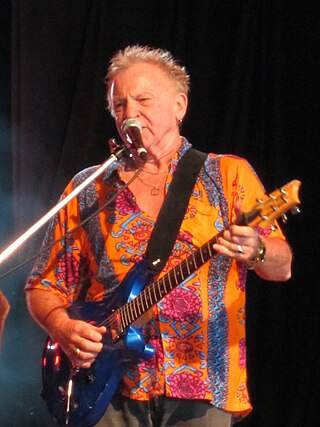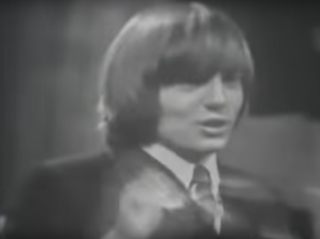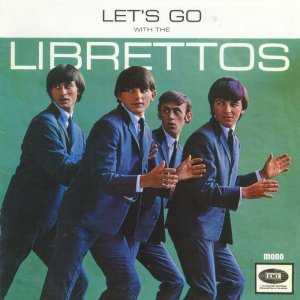| Catalog no. | Date | Artist | Title | Notes |
|---|
| QK-747 | Oct. 1964 | The Blue Jays | "Jay Walker" / "Path Finder" | |
| QK-778 | Nov. 1964 | Tony Worsley & The Fabulous Blue Jays | "I Sure Know A Lot About Love" / "Me You Gotta Teach" | |
| QK-798 | Jan. 1965 | The Blue Jays | "Motivate" / "We're Friends" | |
| QK-799 | 1965 | The Pacifics | "Lost My Baby" / "Slowly But Surely" | |
| QK-833 | 1965 | The Playboys | "Exodus" / "Sabre Dance" | |
| QK-903 | Mar. 1965 | Tony Worsley & The Blue Jays | "Just a Little Bit" / "If I" | |
| QK-918 | 1965 | The Playboys | "Swan Lake" / "Camptown Races" | |
| QK-902 | Mar. 1965 | Peter Doyle | "Speechless (The Pick Up)" / "Like I Love You" | |
| QK-935 | Apr. 1965 | The Blue Jays | "Zoom Gonk" / "Hey Jack" | |
| QK-951 | Apr. 1965 | Normie Rowe & The Playboys | "It Ain't Necessarily So" / "Gonna Leave This Town" | Produced by Pat Aulton | |
| QK-952 | 1965 | The Playboys | "Desperado" / "The Mean One" | |
| QK-983 | May 1965 | Tony Worsley & The Blue Jays | "Talking About You" / "I Dream of You" | |
| QK-984 | May 1965 | The Blue Jays | "Beat Out That Rhythm On a Drum" / "I'll Make You Cry Too" | |
| QK-985 | 1965 | Marcie Jones | "I Wanna Know" / "Quiet" | |
| QK-999 | 1965 | Toni McCann | "My Baby" / "No" | |
| QK-1000 | 1965 | Ricky and Tammy | "Won't You Tell Me" / "Little Girl" | |
| QK-1001 | June 1965 | Peter Doyle | "Stupidity" / "Heigh Ho" | |
| QK-1041 | 1965 | The Playboys | "He's Awright" / "Torture" | |
| QK-1069 | June 1965 | Normie Rowe & The Playboys | "I (Who Have Nothing)" / "I Just Don't Understand" | |
| QK-1103 | Sep. 1965 | Normie Rowe & The Playboys | "Que Sera Sera" / "Shakin' All Over" | Produced by Pat Aulton |
| QK-1105 | 1965 | Marcie Jones | "I Just Can't Imagine" / "When A Girl Falls In Love" | |
| QK-1075 | Sep. 1965* | Normie Rowe & The Playboys | "I Confess" / "Everything's Alright" | *withdrawn |
| QK-1087 | Aug. 1965 | Tony Worsley | "Velvet Waters" / "Rock-A-Billy" | Produced by Nat Kipner |
| QK-1105 | 1965 | Marcie Jones | "I Just Can't Imagine" / "When A Girl Falls In Love" | |
| QK-1132 | 1965 | The Five | "I'll Be There" / "How Can She Know" | |
| QK-1138 | 1965 | The Purple Hearts | "Long Legged Baby" / "Here 'Tis" | |
| QK-1162 | 1965 | The Librettos | "I Cried" / "She's a Go Go" | |
| QK-1137 | Nov. 1965 | Peter Doyle | "Watcha Gonna Do About It?" / "Do It Zula Style" | Produced by Pat Aulton |
| QK-1158 | Nov. 1965 | Normie Rowe & The Playboys | "Tell Him I'm Not Home" / "Call On Me" | |
| QK-1169 | Nov. 1965 | Tony Worsley | "Missing You" / "Lonely City" | |
| QK-1184 | 1965 | Frankie Davidson | "Don't You Just Know It" / "So Little Time" | |
| QK-1182 | Jan. 1966 | Mike Furber & The Bowery Boys | "Just a Poor Boy" / "Mailman Bring Me No More Blues" | |
| LK-1208 | 1966 | The Atlantics | "That's Old Fashioned" / "Gotta Lotta Love" | |
| QK-1198 | 1966 | Ricky & Tammy | "Summers Long" / "All Around" | |
| QK-1207 | Feb. 1966 | Peter Doyle | "The Great Pretender" / "Everybody Loves a Lover" | |
| QK-1213 | 1966 | The Purple Hearts | "Of Hopes and Dreams and Tombstones" / "I'm Gonna Try" | |
| QK-1237 | 1966 | The Playboys | "Happy Organ" / "The High and the Mighty" | |
| QK-1238 | Mar. 1966 | Normie Rowe and the Playboys | "The Breaking Point" / "Ya Ya" | |
| QK-1241 | Feb. 1966 | Tony Worsley | "Something's Got a Hold On Me" / "Something" | |
| QK-1243 | 1966 | Dave Howard | "Go Catch the Moon" / "What a Kiss Can Do" | |
| QK-1244 | 1966 | The Five | "I Can't Find Her" / "There's a Time" | |
| QK-1244 | 1966 | The Five | "I Can't Find Her" / "There's a Time" | |
| QK-1250 | 1966 | Frankie Davidson | "The Dollar Auctioneer" / "Just For Today" | |
| QK-1251 | 1966 | The Librettos | "Rescue Me" / "What Do You Want to Make Those Eyes at Me For?" | |
| QK-1227 | Feb. 1966 | Mike Furber & The Bowery Boys | "You Stole My Love" / "It's Gonna Work Out Fine" | released simultaneously as Kommotion KK-1227 | |
| QK-1317 | 1966 | Peter Doyle | "Something You Got Baby" / "Go Away" | |
| QK-1318 | 1966 | Marcie Jones | "Danny Boy" / "That Hurts" | |
| QK- 1341 | 1966 | The Librettos | "Kicks" / "Watcha Gonna Do About It?" | Produced by Pat Aulton |
| QK-1343 | 1966 | Ricky & Tammy | "Through My Fingers" / "Can I" | |
| QK-1344 | June 1966 | Normie Rowe and the Playboys | "Pride and Joy" / "The Stones That I Throw" | Produced by Pat Aulton |
| QK-1366 | June 1966 | Tony Worsley | "Raining In My Heart" / "Knocking on Wood" | |
| QK-1417 | 1966 | Frankie Davidson | "Leave a Little Love" / "Clap Your Hands" | |
| QK-1382 | 1966 | Tony Shepp | "Come On Over to My Place" / "Don't Ask Me Why" | |
| QK-1433 | 1966 | The Atlantics | "It's a Hard Life / "Why Do You Treat Me Like You Do" | |
| QK-1442 | 1966 | The Sounds of Seven | "Dominique" / "Daddy's Little Girl" | |
| QK-1448 | 1966 | The Purple Hearts | "Early in the Morning" / "Just a Little Bit" | |
| QK-1453 | 1966 | The Five | "Bright Lights, Big City" / "Wasting My Time" | |
| QK 1469 | 1966 | The Lost Souls | "Peace of Mind" / "This Life of Mine" | |
| QK-1495 | 1966 | Russ Kruger | "Keep Me Satisfied" / "Tell the Truth" | |
| QK-1529 | 1966 | John Rowles(as Ja-Ar) | "Please Help Me I'm Falling" / "Girl Girl Girl" | |
| QIK-1565 | Nov. 1966 | Normie Rowe | "Ooh La La" / "Ain't Nobody Home" | |
| QIK-1605 | Dec. 1966 | Normie Rowe | "It's Not Easy" / "Mary Mary" | |
| QK-1531 | Nov. 1966 | Peter Doyle | "Tweedlee Dee" / "Mr Goodtime" | |
| QK-1556 | Jan. 1967 | Tony Worsley | "No Worries" / "Humpy Dumpy" | |
| QK-1557 | Jan. 1967 | The Atlantics | "I Put A Spell On You" / "By the Glow of a Candle" | |
| QK-1567 | 1967 | Marcie Jones | "That's the Way It Is" / "Big Lovers Come in Small Packages" | |
| QK-1589 | 1967 | The Purple Hearts | "You Can't Sit Down" / "Tiger in Your Tank" | |
| QK-1590 | 1967 | Ricky & Tammy | "We Don't Do That Anymore" / "Paradise" | |
| QK-1633 | 1967 | Russ Kruger | "Look At My Baby" / "My Little Girl" | |
| QK-1691 | 1967 | The Atlantics | "You Tell Me Why" / "Come On" | |
| QK-1692 | 1967 | Bill & Boyd | "Two By Two" / "Symphony For Susan" | |
| QK-1717 | 1967 | The Running Jumping Standing Still | "Diddy Wah Diddy" / "My Girl" | |
| QK-1718 | 1967 | Marcie Jones | "You Can't Bypass Love" / "He's Gonna Be Fine Fine Fine" | |
| QIK-1731 | Apr. 1967 | Normie Rowe | "Going Home" / "I Don't Care" | |
| QK-1733 | 1967 | Mouse | "(Wear A) Yellow Raincoat" / "Pink Fairy Floss" | |
| QK-1736 | 1967 | The Purple Hearts | "Chicago" / "Bring It on Home" | |
| QK-1772 | 1967 | Julian Jones & The Breed | "Regrets" / "No Matter What You Do" | |
| QK-1817 | 1967 | Normie Rowe | "I Live in the Sunshine" / "Far Beyond the Call of Duty" | |
| QK-1820 | June 1967 | Normie Rowe | "But I Know" / "Sunshine Secret" | |
| QK-1839 | 1967 | Bill and Boyd | "If I Were a Rich Man" / "Little Miss Sorrow, Child of Tomorrow" | |
| QK-1849 | 1967 | Mike Furber | "It's Too Late" / "I'm So Glad" | |
| QK-1858 | 1967 | The Escorts | "The House on Soul Hill" / "Sound of Your Voice" | |
| QK-1859 | 1967 | Ross D. Wyliewith the Escorts | "Short Skirts" / "Paper Bunnies" | |
| QIK-1872 | 1967 | The Playboys | "Black Sheep RIP" / "Sad" | |
| QK-1819 | 1967 | The Running Jumping Standing Still | "She's Good To Me" / "Little Girl" | |
| QK-2022 | 1967 | Ross D. Wylie | "A Bit of Love" / "Last Day in Town" | |
| QK-2008 | Oct. 1967 | Normie Rowe | "Turn Down Day" / "Stop to Think It Over" | |
| FK-1986 | 1967 | Bill & Boyd | "Les Marionettes" / "She Chased Me" | |
| QK-1998 | 1967 | The Escorts | "On a Day Like Today" / "Sitting By a Tree" | |
| QK-2012 | 1967 | Mike Furber | "Bring Your Love Back Home" / "If You Need Me" | |
| QK-2014 | Oct. 1967 | Tony Worsley | "Reaching Out" / "Do You Mind" | |
| QK-2225 | Mar. 1968 | Rev. Black & The Rockin' Vicars | "Down to the Last 500" (Vanda-Young) / "Sugar Train" | Produced by Pat Aulton -- #30 Brisbane, 4 weeks |
| QK-2238 | May 1968 | Normie Rowe | "Penelope" (Brian Peacock) / "Lucinda" (Brian Peacock) | |
| QK-1728 | 1968 | Tony Williams | "If You Lose Her" / "It's Alright Now" | |
| QK-2381 | 1968 | Jonne Sands | "It's Your Life" / "I'll Never Dance Again" | |
| QK-2479 | 1968 | Rev. Black & The Rockin' Vicars | "Such A Lovely Day" / "Sorrowful Stoney" | Produced by Ron Dalton |
| QK-2458 | 1968 | Jonne Sands | "Mothers and Fathers" / "Isn't It" | |
| QK-2493 | Aug. 1968 | Normie Rowe | "Born to Be By Your Side" / "Break Out" | |
| QK-2514 | 1968 | Johnny Mac & The Zodiacs | "Mister Sticker Licker" / "Just Step Back" | |
| QK-2596 | Oct. 1968 | Normie Rowe | "Walking on New Grass" / "Open Up The Skies" | |
| QK-2577 | 1968 | Jonne Sands | "Change of Mind" / "Gingerbread Man" | |
| QK-2693 | 1968 | Geraldine Fitzgerald | "Something to Think About" / "Let's Go" | |
| QK-2752 | 1969 | Rev. Black and the Rockin' Vicars | "Walking and Talking" / "How Does It Feel?" | Produced by Pat Aulton | |
| QK-2819 | 1969 | Normie Rowe | "Just To Satisfy You" / "Drinkin Wine Spo-Dee-O-Dee" | |
| QK-2880 | 1969 | Jonne Sands | "Let the Sunshine In" / "Wish It Were You" | |
| QK-2890 | June 1969 | Normie Rowe | "You Got Style" / "Don't Say Nothing Bad (About My Baby)" | |
| QK-2982 | 1969 | Coloured Rain | "Angie" / "What More Do You Want" | |
| QK-2983 | 1969 | Jonne Sands | "Yeah I'm Hip" / "I've Just Seen a Face" | |
| QK-3115 | 1969 | Inside Looking Out | "Long Live Sivananda" / "On Whom Her Favour Falls" | |
| QK-3118 | 1969 | Wickedy Wak | "Billie's Bikie Boys" / "Chitty Chitty Bang Band" | Produced by Ian Meldrum | |
| QK-3183 | 1970 | Jonne Sands | "Oh Girl" / "Confessions of a Lonely Man" | |
| QK-4085 | 1971 | Normie Rowe & The Playboys | "Que Sera Sera" / "Let Me Tell You" | re-release | |
| QK-4412 | 1971 | Jelly Roll Big Band | "I've Been Away Too Long" / "Son Of a Preacher Man" | |






